Everyone is aware of how crucial access to clean water is. But, a variety of the activities we do can cause water pollution in many ways. Taking certain actions at home and in the community, you may safeguard water in a number of simple and affordable ways, as described in this post.
Lakes, rivers, oceans, and groundwater are all considered to be part of the definition of water bodies that have been contaminated. We are all aware that water contamination is a serious problem, particularly as we increase the manufacturing of potentially dangerous compounds. In addition to causing contaminated water, water pollution harms wildlife that depends on clean water for living.
Following are a few points that will help in reducing water pollution:
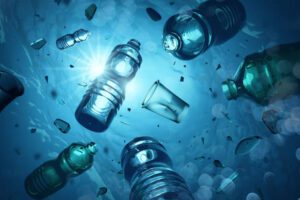 (Photo from istock)
(Photo from istock)
Disposing chemicals properly
Chemicals included in cleaners, pesticides, and other home items might not seem like such a huge concern. Yet, a variety of chemicals, such as bleach, paint, paint thinner, ammonia, and others, are starting to pose a serious problem. Millions of individuals flushing or disposing of hazardous materials down toilets each month have a cumulative effect. Thus, proper disposal is essential.
Household chemicals can be recycled. There may be a recycling center in your neighbourhood where you may recycle chemicals like old paint and used motor oil. Also, some places have community collection centres and drop-off points.
Reduce polluting substances in shopping
Initially refraining from acquiring things that comprise harmful and persistent chemicals, you can avoid difficulties with household chemicals and pesticides. Non-toxic, biodegradable cleaners and insecticides are now readily available from several businesses. By paying a little more for specific things, water contamination is automatically minimized.
Grease and oil are harmful
Grease, used cooking oil, and other solid waste should be thrown out with regular garbage or saved in a “fat jar.” Your pipes could clog, resulting in sewer lines backing up into basements and yards. The pollution also contaminates nearby bodies of water.
Use eco-friendly cleaner for less water pollution
You can further lower water pollution by using only the amount of these cleaners required to do the work. Apart from phosphorous, cleansers also include other harmful substances. Phosphates induce algal blooms by reducing the amount of oxygen in the water, which kills fish and other aquatic life.
It starts with your drain
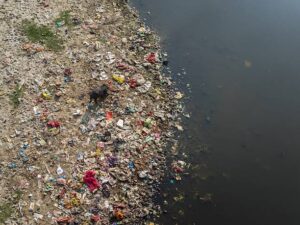 (Photo from istock)
(Photo from istock)
The sanitary sewer systems of the town periodically get waste from these devices. System gets inundated with biological wastes, heavy metals, cleaning agents, and more via this connection. If you have a sump pump or cellar drain and are unsure of where they discharge to, you should inquire with the city’s pollution control department.
Dispose medical waste properly
Never flush drugs down the toilet or dispose of them in the local creek or pond. Medicines have a propensity to accumulate in aquatic environments as well as in fish and other wildlife. Hormones and other compounds end up causing a range of health problems in fish and birds as well as poisoning the drinking water for people and cattle.
Prefer organic diet to reduce water pollution
Organic foods can be treated with chemicals, but few synthetic chemicals are normally used in their production. Consuming organic foods reduces the amount of chemical pollution that gets into the water system. The food we choose to eat has a big impact on environmental quality because of the chemicals used in food production, the fuel used to transport the crops, and the fuel used to drive agricultural machinery on industrial farms.
Check water polluters
Unreported and frequently left unrepaired are numerous instances of unlawful garbage disposal and other types of water pollution. Inform the authorities about anyone who throws trash into a stream, pours oil down a storm drain, etc.
Contribute in environmental charities
There will be non-profit organizations trying to protect watersheds, clean up water pollution, and other causes no matter where you live in the nation. A donation should be made annually to a local organization that is engaged in the community. Even more anti-pollution work could result from your assistance.
Avoid non-veg diet to reduce water pollution
Raising animals for meat requires a lot of water, both to keep them alive and to provide them the grains and other food they need to survive. Moreover, both solid waste and antibiotics commonly enter groundwater and rivers.
Plastic is the enemy
Plastic shopping bags and beverage six-pack rings seriously affect the lakes and oceans of the country. Bottles can last years in water. Rather, spend money on some reusable cloth or plastic grocery bags. These may be acquired for as little as $1 per, thus the cost is really low. Reusable, insulated containers should be used to store beverages, and you should filter your own water at home.
Check your vehicles’ leakage
Vehicles’ oil and other fluid leaks cause the local water table or creeks and streams to become contaminated. Simply be vigilant about keeping and fixing your automobiles to solve this runoff issue. Inexpensive mechanical issues are frequently brought by leaking gaskets, hoses, and seals, so it might be cost-effective to replace the worn components.
Reduce consumption of chemicals
Homeowners take pride in maintaining a lush, healthy yard. Water contamination is caused by this need for a lush lawn in two ways: Pesticides and fertilizers inevitably leach into the water from the bushes and lawns. Choose landscaping that fits the climate. There are undoubtedly beautiful plants that may flourish without much assistance from additional chemicals wherever you live. As a result, it is less expensive to maintain the plants. Also, you won’t waste as much water trying to keep those plants alive.
Reforestation to lessen water pollution
Trees prevent erosion that might otherwise wash pollutants into the water. You may also contribute your time to a neighbourhood tree-planting project. Plant trees, bushes, or grass along the bank of any rivers or ponds that are located on your property.
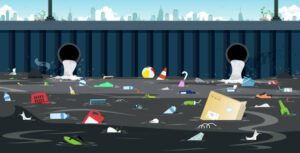 (Photo from istock)
(Photo from istock)
Cleaning beaches and rivers
Because they can complete tasks that are beyond the capacity of the average household, it is crucial to support organizations that seek to protect the water. Volunteer to assist plant trees, clean up the nearby river, or collect household waste chemicals from the locals if you choose not to provide money or can’t afford to. On collection days, some environmental organizations may require volunteer labour.
References:
Arcadia
Thinking about why we need Political Parties, click on the link below:
Why do we need Political Parties

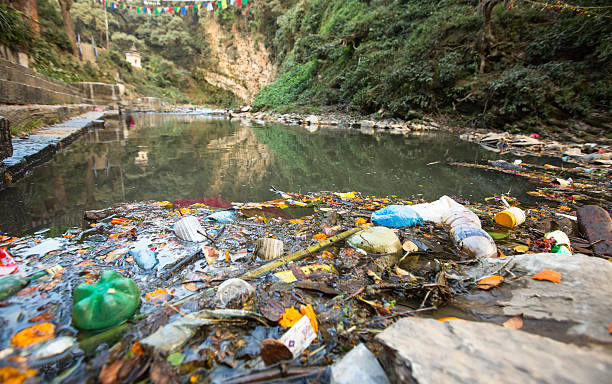
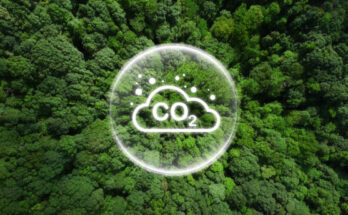
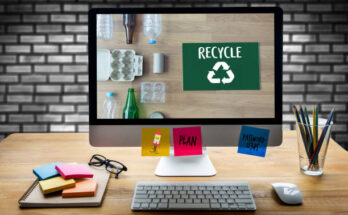

12 Comments on “How to Lessen Water Pollution”